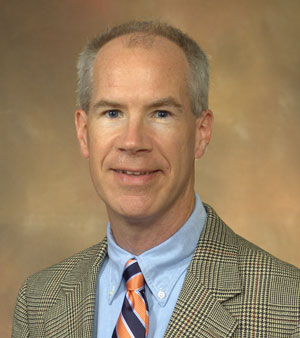 Dr. Alex Werth, Venable Professor of Biology, recently published an article on the "naturalizing error" with colleague Dr. Douglas Allchin, a philosopher and historian of science at the University of Minnesota. The two have been researching claims about human nature including what such claims are, how they arise, and how reliable or informative they are. As part of their ongoing study, Allchin and Werth identified a major fallacy in how people generate and then refer to basic scientific findings.
Dr. Alex Werth, Venable Professor of Biology, recently published an article on the "naturalizing error" with colleague Dr. Douglas Allchin, a philosopher and historian of science at the University of Minnesota. The two have been researching claims about human nature including what such claims are, how they arise, and how reliable or informative they are. As part of their ongoing study, Allchin and Werth identified a major fallacy in how people generate and then refer to basic scientific findings.
Unlike the well-known naturalistic fallacy, or appeal to nature, which warns people that norms or values may be confused with views of nature, Allchin and Werth argue that "the problem in thinking lies at a deeper, more basic level, with the error lying not in moral reasoning but in the initial scientific claim about the natural world." Interpretations of nature taken as scientifically demonstrated facts are frequently flawed and subconsciously embody particular views or ideologies. This is especially common with claims about biology and particularly about "what is natural" in human or animal behavior. Essentially, the false view is often "naturalized" in the initial scientific finding, corrupting later interpretations and making them biased.
This article was published in the Journal of the General Philosophy of Science. Werth and Allchin continue to work on the contentious issue of human nature, with several more publications planned.
June 28, 2016
Dr. Alex Werth, Venable Professor of Biology, recently published an article with colleague Douglas Allchin, University of Minnesota, on the "naturalizing error" which describes how scientific claims often disguise biased views or ideology.